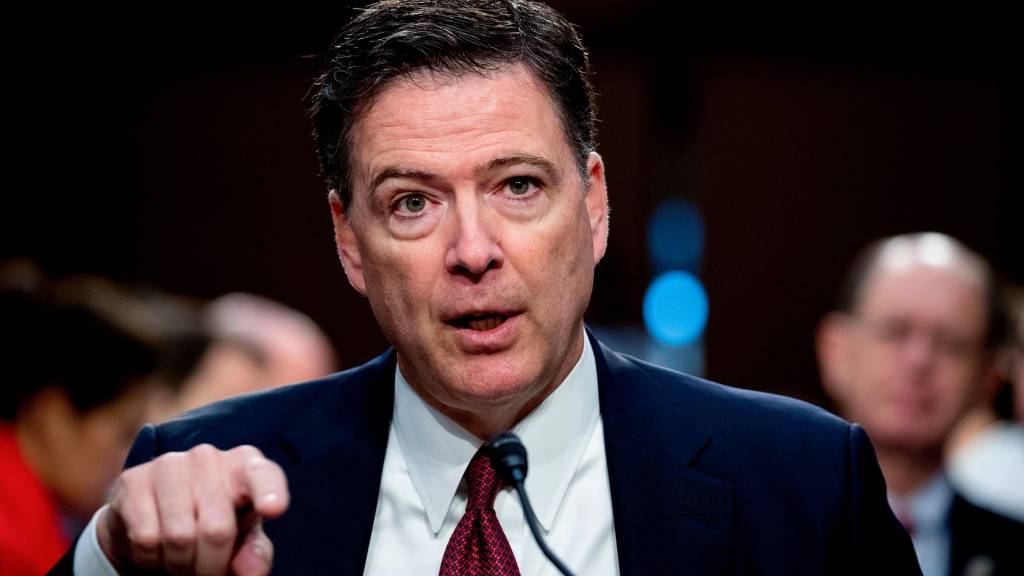
The trial of former FBI Director James Comey began yesterday in a Virginia courtroom, marking a significant moment in U.S. legal and political history. Comey pleaded not guilty to charges of lying to Congress, charges brought forth by a prosecutor closely aligned with former President Donald Trump. This development raises questions about the integrity of the U.S. justice system and its implications for international relations, particularly concerning Australia’s extradition treaty with the United States.
The prosecution of Comey, who played a pivotal role in Trump’s 2016 election victory, is one of several legal actions Trump has reportedly demanded from his Attorney-General, Pam Bondi. These include investigations into Letitia James, the New York Attorney-General who prosecuted Trump for fraud, and Democratic politician Adam Schiff. Former Trump adviser John Bolton is also under investigation, and Trump has called for the prosecution of former ally Chris Christie.
Political Trials and Their Implications
The Trump administration’s approach to legal proceedings has sparked debate over the politicization of the U.S. justice system. Supporters argue that Trump is restoring objectivity, claiming Democrats have previously weaponized the system against him. However, critics point to the open targeting of domestic critics and opposition politicians as a troubling trend reminiscent of authoritarian regimes.
Historically, the misuse of the justice system is not unprecedented in the U.S. The Obama administration initiated the prosecution of Julian Assange for espionage, a case continued by both the Trump and Biden administrations. Yet, the current climate, with its focus on nuisance-level charges against political adversaries, represents a new and concerning direction.
Australia’s Extradition Treaty Under Scrutiny
Australia’s extradition treaty with the United States is now under the spotlight. The treaty includes an exclusion for “political offences,” but the vague definition of such offences complicates matters. The Comey case, for instance, involves charges of lying to Congress, an ostensibly non-political offence, yet it is politically charged in nature.
The potential for Australia to be pressured into extraditing individuals on politically motivated charges is a growing concern. The Assange case highlighted Australia’s reluctance to challenge U.S. demands, even when its own citizens face questionable legal actions.
Historical Parallels and Current Concerns
In 2017, Australia faced a similar dilemma when it attempted to ratify an extradition agreement with China. Concerns over China’s legal system led to a political backlash, resulting in the agreement’s withdrawal. Critics argued that China’s system lacked fairness and transparency, a criticism now applicable to the U.S. under Trump’s influence.
Trump’s FBI, led by Director Kash Patel, has established a presence in Australia, further entrenching U.S. influence within Australia’s security framework. This relationship raises questions about Australia’s autonomy in legal matters and its complicity in potential political prosecutions.
Looking Forward: The Need for Reevaluation
As the U.S. legal system continues to navigate politically charged trials, Australia faces a critical decision regarding its extradition treaty. The Albanese government must weigh the risks of remaining aligned with a potentially compromised legal system against the diplomatic consequences of challenging a key ally.
The situation calls for a reevaluation of Australia’s legal and diplomatic strategies. Ensuring the integrity of its justice system and protecting its citizens from politically motivated prosecutions should be paramount. The possibility of a backbench revolt, similar to the one seen in 2017, looms if the government fails to address these concerns.
In conclusion, Australia’s extradition treaty with the United States is at a crossroads. The evolving political landscape in the U.S. necessitates a careful and considered response from Australian policymakers. As the world watches the unfolding trials in America, the implications for international law and justice remain profound and far-reaching.







